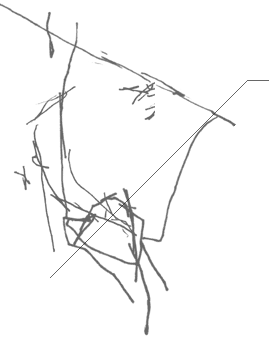Tuesday, March 3, 2026 |
||

|

by Michael Goldberg
Tuesday, May 28, 2002
Bert Jansch Takes The High Road
Discovering the idiosyncratic yet influential Scottish folk singer.
|
|||
|
The girl behind the record store counter wanted to know about the young man on the CD cover. "This guy looks so cool!" she said, showing a co-worker the Bert Jansch CD I was about to purchase.
The cover photo, taken in 1965, depicts Jansch lying on his back on a mattress, his head propped up against a wall. He is pissed off, frowning. He has fat muttonchop sideburns and his longish hair is uncombed — a mess really. If a photograph could talk, this one would say "fuck you." I told the girl in the record store that Jansch was a "folk singer" from Scotland who had influenced Neil Young (and others, including Jimmy Page and Johnny Marr). "He was on that solo album that Hope Sandoval, you know, from Mazzy Star, put out last year," I said. I knew Young was a fan because I'd just read that in "Shakey," the recently published Young bio. Actually, I was buying a couple of Jansch CDs because I wanted to get a sense of how Jansch had influenced Young — and I wanted to acquaint myself with the music of an artist I'd heard about for 35 years, but somehow had never heard. One of the reasons I write about the music I love is because I want to share my excitement with others. My hope is that something I say will motivate those who read my words to take a chance on a new — for them anyway — artist. Usually, I've actually listened to the artist before I start turning others onto them. So this was a little strange — here I had gotten this girl intrigued by Jansch, and I had yet to hear a single note of his music! The first song on the CD with the "cool" cover — a best-of collection, Dazzling Stranger — is called "Strolling Down the Highway." It begins "Strolling down the highway/ I'm going to get there my way." When I heard that line I thought: Certainly Neil Young, who has spent his entire career stubbornly doing things his way, took that lyric to heart. It also appeared that Young had gotten the idea to grow his own muttonchops from Jansch (they're prominently displayed on the cover of Jansch's second album, 1965's It Don't Bother Me, as well. "Some of the greatest guitar playing I ever heard," Young told "Shakey" author Jimmy McDonough, speaking about Jansch. "I could go on for years about this guy, how fuckin' talented he is. Every note destroyed me." It was almost by chance that I actually purchased Dazzling Stranger and It Don't Bother Me. That afternoon I could just as easily have picked up Paul Westerberg's Stereo and/or the Get Up Kids' new one instead. But it was the Jansch albums I bought — thank God! I guess you could call Jansch (who in 1967 co-founded the folk-rock group Pentangle) a folk singer, though there's blues and jazz in his music. One of his songs has an Eastern modal feel; it sounds like the blueprint for some of the work of American '60s band Kaleidoscope. There's a distinctly Scottish sensibility to Jansch's recordings — certainly his voice has that Scottish lilt. It's a gentle voice, a voice perfect for love songs, yet a sincere, passionate voice that can deliver hard words too. It's a softer voice than such folkies as Ramblin' Jack Elliot or Bob Dylan; closer perhaps to early Donovan (another artist Jansch influenced). It's easy to see why Young could relate to Jansch. The Scotsman may have played an acoustic guitar, but his spirit was pure rock 'n' roll rebel (even the title of that second album, It Don't Bother Me, sounds like the precursor to Nevermind). On Jansch's 1965 debut, Bert Jansch, he included the heartfelt, melancholy heroin song "Needle of Death," about a friend who'd overdosed ("Your troubled young life had made you turn/ To a needle of death"); it predated Young's own "The Needle and the Damage Done" by seven years. There's nothing simple about "Needle of Death." Late in the song Jansch sings, "Through ages man's desires/ To free his mind, to release his very soul/ Has proved to all who live/ That death itself is freedom forever more." Jansch is what they call a "triple threat." In addition to his singing and songwriting, his guitar playing is every bit as strong as Young's "Every note destroyed me" would lead you to believe. In fact, Young once told Guitar Player that Jansch did for the acoustic guitar what Hendrix did for the electric. His playing is visceral; you can feel his fingers plucking the steel strings. He's intense yet graceful as he pulls melodies from his instrument. Just listen to "Blackwater Side" or "Nobody's Bar" — what you hear is a man expressing his emotions. This is powerful stuff. In the record store, I paid for the CDs and, reluctantly, the girl handed them to me. "Bert Jansch," she said, writing the name on a small piece of paper. "Where did you find those?" "In the folk section," I said. As I left the store, I was smiling. |
||||